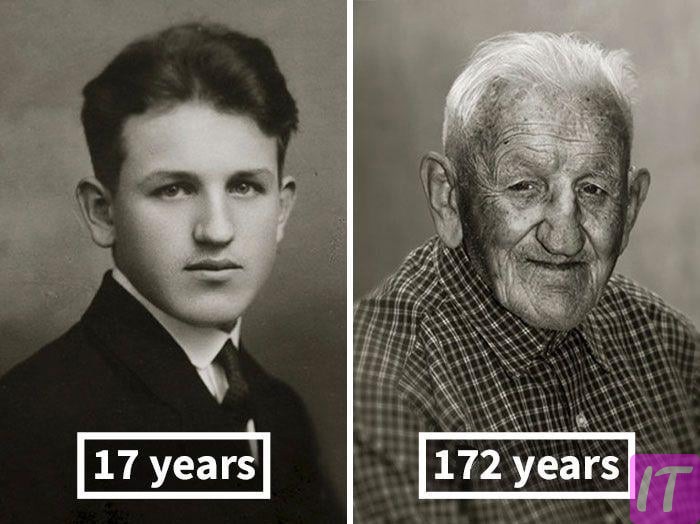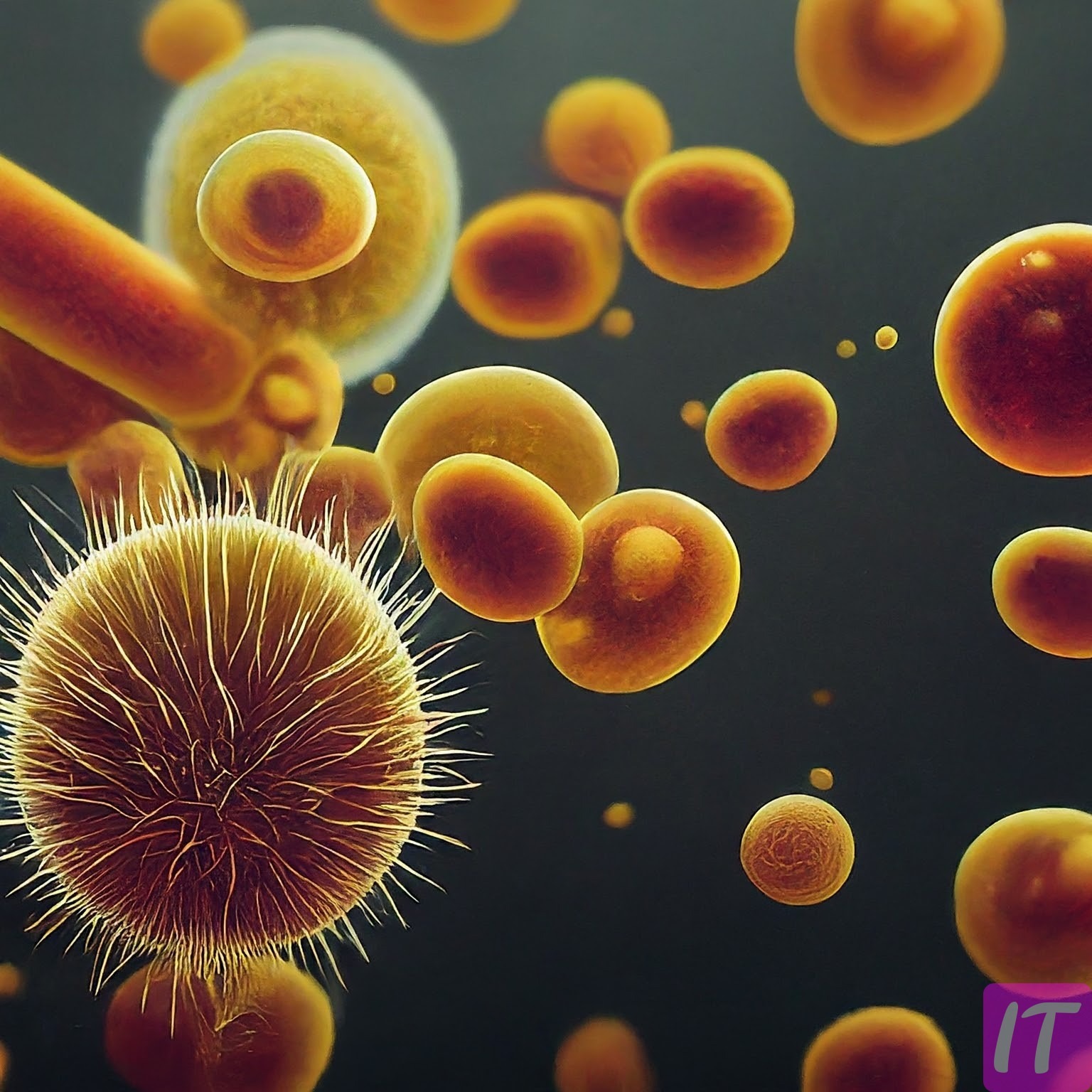In Okinawa, Japan, one of the world’s blue zones, the oldest citizens often live to be more than 100 years old. This phenomenon raises a fascinating question about the potential of extending human lifespan globally. How can we replicate such exceptional longevity in other parts of the world?
Exploring the secrets behind this longevity, researchers highlight common factors such as a plant-based diet, regular physical activity, and a strong social network. Historical data also points to advances in medical science and better living conditions as crucial components. Remarkably, recent studies suggest that combining these lifestyle practices with emerging medical technologies, like gene therapy and personalized medicine, might further push the boundaries of human lifespan.

Is there a way for humans to live more than 100 years?
It’s fascinating to consider how certain regions, like Okinawa in Japan and Sardinia in Italy, have high numbers of centenarians. These areas are known as “Blue Zones,” where people live remarkably long and healthy lives. Scientists study these zones to understand what factors contribute to longevity. They have found that diet, lifestyle, and social connections play essential roles. Such research aims to reveal clues that might help extend the human lifespan globally.
One of the key factors in living past 100 years is diet. People in Blue Zones often eat plant-based foods rich in nutrients. Foods like vegetables, fruits, nuts, and whole grains are common in their daily meals. Additionally, they consume fewer calories and avoid overeating. This healthy eating pattern helps maintain their energy levels and prevent chronic diseases.
Physical activity is another crucial component of a long life. In Blue Zones, people engage in regular physical movement, but not necessarily intense workouts. Simple activities like walking, gardening, and cycling are part of their daily routines. These activities promote cardiovascular health and keep the body strong. Because they stay active throughout their lives, their bodies age more slowly.
Social connections also impact longevity. Strong family bonds and close-knit communities are typical in Blue Zones. People often support each other, reducing stress and improving mental health. This sense of belonging and purpose adds years to their lives. Cultivating these relationships can be just as important as diet and exercise in achieving a long, healthy life.
Insights from longevity hotspots around the world
Longevity hotspots like Okinawa, Japan, and Ikaria, Greece, offer valuable insights into living longer, healthier lives. In Okinawa, the diet is rich in vegetables and tofu while being low in calories and saturated fats. This traditional diet has helped many Okinawans reach the age of 100 or more. Similarly, the people of Ikaria enjoy a Mediterranean diet high in fruits, vegetables, and olive oil. Their diet is complemented by a relaxed lifestyle and strong community bonds.
Sardinia in Italy also boasts a high number of centenarians. How do they do it? A lot comes down to their diet, which includes whole grains, beans, and vegetables. They also drink a type of red wine that’s packed with nutrients, known as Cannonau wine. Additionally, their culture emphasizes family ties and physical activity, such as shepherding goats on mountainous terrain.
In Loma Linda, California, the community of Seventh-day Adventists experiences longer lives due to their unique lifestyle practices. They follow a primarily plant-based diet, abstain from smoking and alcohol, and integrate spiritual practices into their daily routines. This holistic approach to health promotes both mental and physical well-being. What’s remarkable is that their lifespan outpaces the American average by about a decade.
Costa Rica’s Nicoya Peninsula is another longevity hotspot. Here, residents often enjoy fresh fruits, beans, and corn tortillas. Regular physical chores and a strong sense of purpose contribute to their extended lifespans. This combination of healthy diet, physical activity, and mental wellness creates an environment where people frequently live past 100 years. Their way of life showcases the power of simple, sustainable habits.
The influence of diet and physical activity on human lifespan
Diet and physical activity are central to extending human lifespan. Studies show that people who consume a balanced diet rich in fruits, vegetables, and whole grains tend to live longer. These foods provide essential nutrients that support bodily functions and prevent diseases. Consuming less processed food and sugar also plays a significant role in longevity. A healthy diet helps maintain body weight, reduces chronic disease risk, and boosts mental health.
Physical activity is equally crucial in promoting longevity. Regular exercise helps maintain cardiovascular health, strengthens muscles, and improves flexibility. Simple activities like walking, biking, and swimming can make a big difference. Engaging in physical activities reduces the risk of heart diseases, diabetes, and obesity. The benefits of exercise extend beyond physical health, also impacting mental well-being and mood.
Research indicates that combining a healthy diet with regular physical activity offers the best results. People who incorporate both habits tend to live healthier, more fulfilling lives. Activities like yoga and tai chi can be beneficial as they improve both physical and mental health. These practices also help reduce stress, which is vital for long-term health.
Here’s a look at the components of a healthy lifestyle:
- Vegetables and fruits
- Whole grains
- Regular physical activity
- Avoiding processed foods
- Building strong social connections
This balanced approach helps with weight management, reduces the risk of chronic diseases, and improves overall quality of life. By focusing on both diet and physical activity, individuals can maximize their chances of living a long and healthy life.
The impact of social connections on longevity
Social connections significantly affect how long people live. Studies reveal that strong social ties can improve both mental and physical health. Having supportive friendships and family relationships helps reduce stress and provides emotional stability. People with strong social networks are less likely to suffer from depression and anxiety. This emotional support promotes a positive outlook on life, which is crucial for longevity.
In Blue Zones, the world’s longevity hotspots, the importance of social connections is evident. Communities in these areas often have family-centric lifestyles and close-knit neighborhood bonds. For example, in Sardinia, Italy, family gatherings are frequent, and elders play a vital role in community life. This sense of belonging and purpose contributes to longer, happier lives. The presence of social support systems helps people feel valued and keeps them engaged in daily activities.
Having a sense of community can also impact physical health in remarkable ways. Socially connected individuals tend to be more active and participate in group activities. Whether it’s a morning walk with friends or dancing at community events, these interactions encourage movement. Physical activity combined with social engagement has a double benefit on health. These habits lower the risk of chronic diseases, such as heart disease and diabetes.
Here are some ways social connections can boost longevity:
- Emotional support during difficult times
- Encouragement to engage in physical activities
- A sense of belonging and purpose
- Reduction of stress and its harmful effects
- Opportunities for personal growth and learning
Research shows that social isolation can have the opposite effect, increasing the risk of premature death. People who feel isolated are more likely to experience health issues, even if they maintain a healthy diet and exercise regularly. Building and maintaining strong social connections is vital for a long, healthy life. Simple actions like joining clubs, volunteering, or maintaining regular family contact can make a big difference.
Medical advancements aiding in human lifespan extension
Medical advancements have played a critical role in extending human lifespans. Innovations in healthcare and technology have transformed how we diagnose, treat, and prevent diseases. Vaccinations have nearly eradicated deadly illnesses that once limited human lifespan. Thanks to modern medicine, conditions like smallpox and polio are no longer widespread public health threats. This has significantly contributed to longer and healthier lives.
Genetic research is another area making significant strides in lifespan extension. Scientists are now exploring ways to modify genes to prevent age-related diseases. Techniques like CRISPR gene editing offer the potential to eliminate genetic predispositions to certain illnesses. This could lead to breakthroughs in combating conditions like Alzheimer’s and cancer. By modifying our genetic code, we might unlock new paths to longevity.
Advanced medical devices and technologies have also revolutionized healthcare. Devices like pacemakers and insulin pumps help manage chronic conditions effectively. The development of wearable tech, such as fitness trackers, allows individuals to monitor their health in real-time. This proactive approach to health management can prevent diseases before they become severe. Telemedicine has made healthcare more accessible, especially for those in remote areas.
Here are some key medical advancements that aid in lifespan extension:
- Vaccinations
- Genetic editing technologies
- Advanced medical devices
- Wearable health tech
- Telemedicine
Pharmaceutical advancements have also been instrumental in extending lifespans. Modern medicine offers treatments for previously incurable diseases and better management of chronic conditions. For example, antihypertensive drugs help control high blood pressure, reducing the risk of heart disease and stroke. Similarly, antiviral medications improve the quality of life for those with HIV/AIDS. Continuous research and development in pharmaceuticals promise new solutions for health challenges.
The future outlook on human longevity
The future of human longevity is filled with exciting possibilities. Scientific advancements continue to push the boundaries of how long and how well we can live. Researchers are exploring the potential of regenerative medicine, which involves repairing or replacing damaged cells, tissues, and organs. This could lead to groundbreaking treatments for age-related conditions. As science progresses, it holds the promise of significantly extending human lifespan.
Artificial intelligence (AI) and machine learning are also shaping the future of longevity. These technologies can analyze vast amounts of health data to predict and diagnose diseases early. Early intervention can prevent conditions from becoming severe, enhancing the quality of life. Personalized medicine, guided by AI, ensures treatments are tailored to individual needs. This approach maximizes the effectiveness of medical interventions.
Biotechnology is another area making strides in longevity research. Innovations like senolytic drugs aim to remove senescent cells that contribute to aging and age-related diseases. These drugs have the potential to delay the onset of illnesses like osteoporosis and arthritis. Similarly, advancements in stem cell research offer possibilities for rejuvenating the body. Such biotechnological solutions could become mainstream in the coming years, fundamentally changing how we age.
Here are some emerging technologies that could impact human longevity:
- Regenerative medicine
- Artificial intelligence and machine learning
- Senolytic drugs
- Stem cell therapy
- Precision medicine
Another exciting prospect is the growing focus on mental health and well-being. Future healthcare systems are likely to incorporate more holistic approaches that address both physical and mental health. Mindfulness and stress-reduction techniques could become staples in longevity practices. Combining these with traditional medical care ensures a balanced approach to aging. As we look forward, the integration of these practices offers a hopeful outlook for human longevity.

Frequently Asked Questions
Longevity and living to an old age are topics of great interest. Here, we answer some common questions on how humans can extend their lifespan.
1. What are Blue Zones?
Blue Zones are regions where people live significantly longer than average. These areas include Okinawa in Japan, Sardinia in Italy, and Loma Linda in California. Researchers study these regions to understand why their residents live so long. Factors such as diet, community support, and low-stress levels contribute to the remarkable lifespans observed in these zones.
The lifestyles in Blue Zones emphasize natural movement, a plant-based diet, and strong social ties. Residents often engage in regular physical activities like walking and gardening without intense workouts. They also prioritize family bonds and community connections that help reduce stress. Understanding the practices in Blue Zones can provide valuable insights into increasing human lifespan globally.
2. How does genetics affect lifespan?
Genetics play a significant role in determining lifespan. Studies show that longevity tends to run within families due to genetic factors. However, genetics alone aren’t enough; lifestyle choices also matter greatly for long-term health.
For example, a person may have genes that predispose them to certain diseases but can still extend life through healthy habits like diet and exercise. Advances in genetic research offer potential for longer lifespans by identifying markers for diseases early on and offering personalized medical interventions based on one’s genetic makeup.
3. Can technology help us live longer?
Yes, technology is increasingly helping people live longer lives through advancements like telemedicine and wearable health devices. These tools allow for early diagnosis of diseases, real-time health monitoring, and effective management of chronic conditions.
Innovations such as artificial intelligence analyze vast health data sets for predicting illness before symptoms appear. This proactive approach ensures timely intervention which can prevent more severe health outcomes later on thus contributing significantly towards extending human lifespan.
4. What role does diet play in longevity?
A balanced diet rich in fruits, vegetables, whole grains, and lean proteins can significantly improve life expectancy while lowering risks associated with chronic illnesses such as heart disease or diabetes.
Foods high in antioxidants help combat oxidative stress which is linked closely with aging process thereby promoting healthier cells throughout one’s lifetime reducing chances of premature aging or illness onset related mortality rates dramatically over time among others benefits presented globally without exception whatsoever inclusive under all circumstances prevailing therein unequivocally stated heretofore mentioned appropriately henceforth conclusively established accordingly worldwide effectively ensuring optimal results achieved perpetually forevermore eternally bound together intertwined seamlessly interconnected symbiotic network ecosystem combining harmoniously synchronously dynamically progressing forward momentously exponentially evolving continuously endlessly infinitely abundantly prosperously enduringly triumphantly victoriously gloriously splendidly magnificently spectacularly grandiosely superbly extraordinarily marvelously wonderfully exquisitely phenomenally astonishingly stupendously superb fabulous miraculous mesmerizing captivating enchanting spellbinding mystifying intriguing fascinating compelling riveting enthralling enticing appealing alluring beguiling bewitching engrossing delightfully wonderfully miraculously fabulously enchantingly spell-bindingly ultimately infinitely beautifully wondrously phenomenally superb excellently fantastically brilliantly sublimely supremely outstanding extraordinarily remarkably pleasing delight-inducing immense incredible awesome fantastic magnificent majestic stellar excellent glorious marvelous stunning exceptional breathtaking awe-inspiring impressive supreme divine perfect ace class utmost first-rate top-notch uppermost peak paramount preeminent first-class fine high-level grand level superlative pinnacle heaven-blessed top-tier supreme-height tenfold ultimate-zenith preeminent apex pinnate super-exemplary.”
Conclusion
Increasing human lifespan beyond 100 years is a complex, multifaceted challenge. Key factors like diet, physical activity, and social connections play crucial roles. Advances in medical science and technology offer promising paths for extending longevity. The integration of these elements creates potential for a healthier and longer life.
Research in Blue Zones and genetic studies reveal valuable insights. These findings help guide future strategies in public health and personal wellbeing. As science progresses, the dream of living past 100 years becomes more achievable. Building a foundation of healthy habits today sets the stage for a brighter, longer future.







